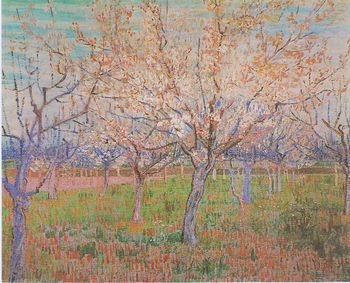Phenology
Phenology is the study of seasonal biological development. Growth of plants and animals is dependent on food, nutrients, water, and light. Assuming that these are abundant, the factor that determines the speed of development is temperature. Models of crop and insect development are thus based on daily temperatures. Developmental stages are observed to follow the product of temperature and time: Growing Degree-Days.
1 Introduction
As cumulative Growing Degree-Days increase throughout the season, milestones in development of each species are passed when biological treatments and controls may be applied. The effort and material required to secure future crops are minimized by applying resources at optimal times.
-
Historical
Context
Mankind's survival has always depended on the study of living things. Calendars were essential to prepare for harvest and led to writing and mathematics at the dawn of the Historical Era.
-
Digital
Computing
In the 1960s, high-speed digital computing became cheaper, and building elaborate mathematical models for the growth of plants and animals became feasible.
-
How to Approximate Growing Degree-Days
Growing Degree-Days can be measured, but this is tedious to do. Instead, phenological models are based on approximations. Given minimum and maximum temperatures each day, an estimate of daily Growing Degree-Days can be derived.
-
WeeWX
Extension
This announces an extension to the WeeWX software suite by Tom Keffer, Matthew Wall, and Gary Roderick, which runs on Linux operating systems. The software interoperates with several dozen brands of home and backyard weather stations. This extension module calculates and charts cumulative Growing Degree-Days, according to various published models. Also, it provides a drop-in replacement for the WeeWX Image Generator. The Phenology Image Generator implements transparent chart layers.
-
Control of Codling
Moth
Codling moth (Cydia pomonella) is a major insect pest of apples and other fruits and nuts worldwide. It is the proverbial and the ecological "worm in the apple." The development models for codling moth are advanced. This document provides a real-world example, using the Phenology WeeWX Extension to predict when to spray control chemicals.
The Phenology WeeWX Extension is written in Python 3. It was developed for WeeWX 4.2.0 and has been tested with WeeWX 5.0.2.
Disclaimer: I am a sales associate for a worldwide discount retailer. I am a systems analyst by training, and I have worked in the field for a regional grocery distributor, a worldwide consumer electronics manufacturer, and a "Big 10" university. Beyond tending a backyard orchard, I have no credentials whatever in the life sciences. The information herein is drawn from sites publicly available on the Internet.
